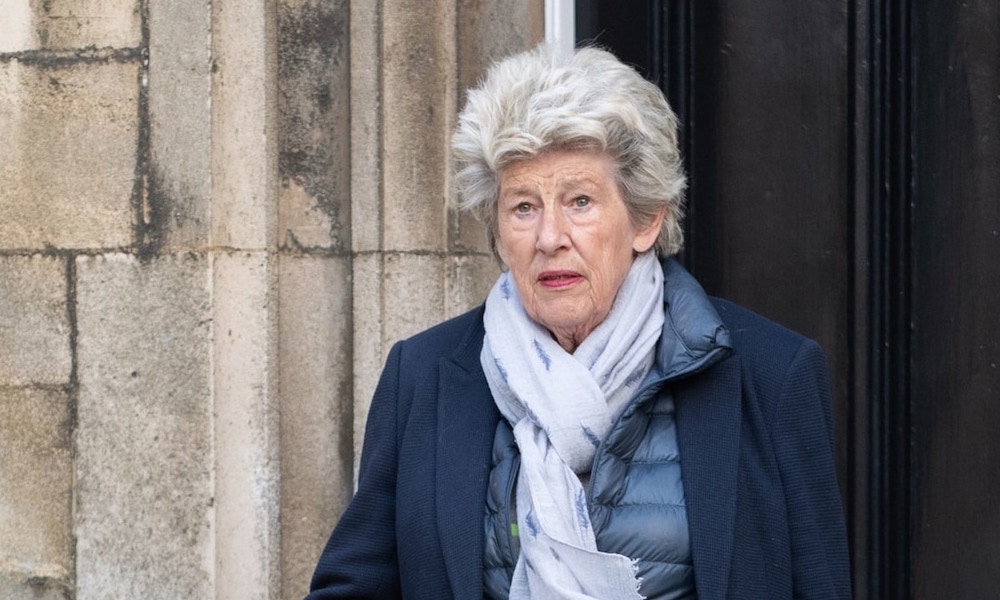The launch of FAIR – Falsely Accused Individuals for Reform – stimulated a debate with passionate views on both sides.
FAIR was created by Daniel Janner QC, son of the late Lord Janner who was falsely accused of sexual crimes, and has the aim of changing the law to prevent the publication of the identity of people accused of sex offences until charged.
FAIR’s campaign is to have the law changed so that those accused of sexual crimes were given anonymity until they are charged by the Police. At present, while complainants claiming to be victims of alleged sexual crimes are given lifelong anonymity, the accused are given no such protection.
The campaign launched a petition and was given added media attention by the support of, among others, Sir Cliff Richard, Paul Gambaccini and Harvey Proctor, well-known people whose lives were ruined by the public disclosure of allegations which were without credible foundation.
The case for…
- People falsely accused of sexual offences, particularly those involving children can have their lives, careers and reputations permanently damaged, if not completely destroyed, by having their names published merely on the basis of allegations which may have no foundation and, in dome cases, are subsequently dropped by the authorities.
- As those leading the campaign have said repeatedly, they have suffered significant psychological damage, loss of sleep and much more, due to the media coverage from cases involving allegations for which they were never even charged.
- The salacious gossip printed in the press and on tv has a stronger tendency to be repeated than other crimes
- The widely iterated expression “there’s no smoke without fire” is applied more readily to sexual allegations than other alleged crimes.
The case against…
Those who are against the proposed changes include those who campaign for the rights of victims of Sexual Offences. Their arguments may be summarised as follows:
- They say it is important that the names are able to be published so that other ‘victims’ may come forward
- They ask “Why should there be a distinction between those accused of sexual offences and other crimes who are not entitled to such protection?”
- They claim that the numbers of those falsely accused are so low that it would be wrong to change the law on their behalf to the detriment of the majority of genuine victims.
- In considering the case of Sir Cliff Richard, they say that the fault lies not with the law but with the nature of the Press coverage and that their campaign should directed at that instead.
Refuting the case against
(Numbers relate to the numbered points above).
- The problem with this argument is that it also encourages more false accusers to come forward, confident in the knowledge that their allegations are even more likely to be believed because of the existing ones. That trend increases and becomes self-fulfilling. False accusers know that each new person that comes forward is more likely to be believed because of the others, which makes the success of their claim for compensation ever more likely, which encourages even more… That’s how you get a number of liars falsely accusing the same person, as has happened with various celebrities.
Unfortunately, this does not work in reverse. If no one else comes forward despite wide-ranging publicity, or if others come forward in support of the accused, it counts for nothing.
It also reverses the true priorities of the justice system. It is a fundamental principle of justice that protection of the innocent comes before prosecution of the guilty. (See this post for reasons why).
In my own view, victims should not be ‘encouraged’ to come forward if they have not already done so through their own volition. It does not necessarily help them if they have moved on from their ordeal only to have the whole thing brought back into their lives. If they have been abused and feel strongly that they would like to see their abuser face justice, they should come forward without prompting and not require a bandwagon to jump onto.
Furthermore, the criminal justice system does not have the resources to handle contemporary cases satisfactorily and I see no point in adding historic cases to the burden as well – let alone prioritising them.
- The reason is because there IS already a difference in that complainants of sexual allegations have anonymity and because of the public perception of sex offences compared to other crimes. Even murderers are not subject to the level of bile and hatred aimed at alleged sex offenders, especially where the alleged sex offences concern children. Moreover, one gets the impression that people almost WANT to believe in them – it is as if people like to be shocked, and so the worse the allegations, the more ready to believe them they are likely to be. This is perhaps even more so if the accused is deemed to be successful or important.
- The claim that false allegations are rare is baseless and such claims are only ever justified with nonsensical logic and cherry-picked data. In fact, there is no reason to believe that false allegations are rare and every reason to believe that they are not.
There is simply no way of obtaining accurate figures which indicate how many allegations are false. The figures quoted by those who claim it is rare do not stand up to scrutiny. Research in other countries (which are unlikely to be radically different from the UK) shows that numbers are far higher than claimed.
Nonetheless, truth and justice is not about playing the percentages – the wrecking of innocent people’s lives should not depend on numbers and those who oppose that view would think differently if their loves ones were affected.
- The idea of changing the way the press behave is simply naive. The press will chase whatever is newsworthy and will not change their ways as long as the law permits them, even encourages them, to behave as they do now.
Does the FAIR campaign go far enough?
It is Daniel Janner’s view that the campaign as it stands is difficult enough to persuade the public and the government to change and for this reason has stopped at “before charge” and this would have helped those mentioned above who are supporting the campaign.
However, there are, of course, many people who have been the victims of false allegations who were charged and for them, the campaign does not go far enough.
Campaigning figures such as (sadly, the now late) Simon Warr argued that, given that the damage suffered by those who are not charged increases dramatically after being charged, and that the protection of anonymity should apply until conviction.
They claim that the lives and careers of innocent people falsely accused and charged would still be ruined even if the policy for which FAIR are campaigning had been in place.

One of the relatively few women to have been accused, Lady Lavinia Nourse, the widow of the late Sir Martin Nourse, an eminent judge, was cleared in May of all 17 counts of Historic Sexual Abuse (HSA) for alleged events in the 1980s and takes it further still, believing that complainants should lose anonymity after a trial in which the accused has been acquitted.
In a Woman’s Hour interview with Emma Barnett, Lady Bourse said:
“I know who accused me but of course I can’t say who accused me.
And this makes conversations … very difficult because I can’t be honest and frank. That’s what makes it so appalling. And makes things like this so difficult because I can’t be truly honest about him…
“What’s been said, what’s been written will live with me forever. And yet the person who has made these accusations walks free, and can continue to say whatever he likes for the rest of his life.”
For cases which make the national press, it is also likely that members of the jury will already have read the allegations and been unduly influenced before having heard any evidence at trial. The salacious nature of such cases makes this far more likely than other crimes, such as armed robbery or murder. Even if the jury was not previously aware of any press coverage, any directions by the judge that members of the jury must not look at them is likely, in many cases, to have the opposite effect, knowing damn well that such an instruction is unenforceable and the breaking of such rules undiscoverable.
The problem with Lady Nourse’s view is that many would say that it can’t be assumed that every time there is no conviction, the complainant must be lying, even if many of them are and that it would prevent many genuine victims reporting it.
I do think that, in a fair system, there would be anonymity until conviction, but I can also see that the FAIR campaign will still be an uphill struggle; adding the extra level might make it impossible.
I also believe that, where there is good reason (evidence) to believe that allegations are false, rather than just unproven, accusers should be prosecuted and lose their anonymity. Genuine accusers should not fear this as there would not be any evidence to suggest they were lying.
To sign the petition visit this link:
FAIR’s website shows a video of Sir Cliff Richard talking about the campaign.
